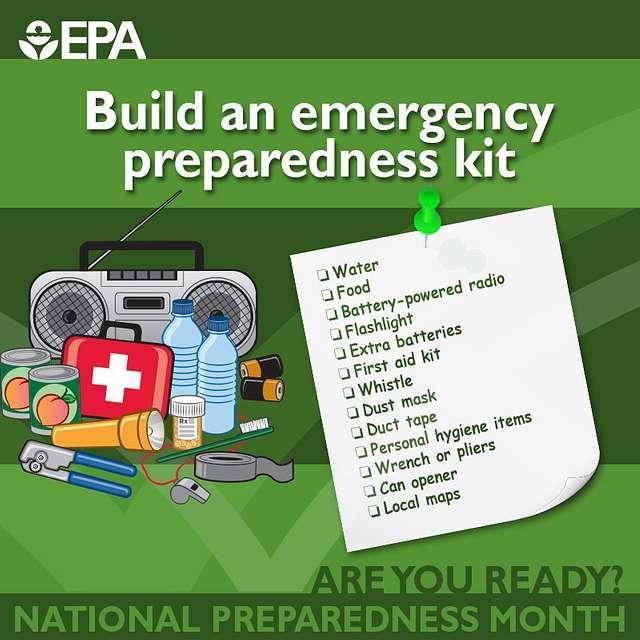As the final chapter of our lives approaches, planning for the end can often seem overwhelming and uncomfortable. However, dedicating time to prepare for the inevitable can bring peace of mind and ensure that our wishes are honored. From healthcare decisions to funeral arrangements, thoughtful planning can ease the burden on loved ones during challenging times. Join us as we delve into the significance of end-of-life planning and the steps you can take to ensure a dignified and fulfilling conclusion to your journey.
Exploring End-of-Life Preparation
When it comes to end-of-life planning, there are numerous options to consider to ensure your wishes are fulfilled and your loved ones are cared for. Although making these decisions can be challenging, being prepared can bring peace of mind.
Key end-of-life planning options include:
- Drafting a will to specify the distribution of your assets
- Establishing a trust to manage your estate and provide for your beneficiaries
- Appointing a healthcare proxy to make medical decisions on your behalf
- Pre-planning your funeral arrangements
By considering these options and making arrangements in advance, you can alleviate stress and uncertainty for both yourself and your loved ones. It’s never too early to start planning for the future.
The Importance of Advance Directives
Advance directives are a vital component of end-of-life planning that is often overlooked. These legal documents outline your preferences for medical care if you are unable to communicate them yourself.
Creating advance directives ensures that your wishes are respected and followed regarding life-sustaining treatments, organ donation, and more. This can provide peace of mind for both you and your loved ones during difficult times.
Having advance directives in place can also relieve family members from making tough decisions on your behalf. It provides clear guidance on what you would want in various medical scenarios, removing the guesswork from the equation.
Creating a Comprehensive End-of-Life Plan
Preparing for the end of life involves creating a comprehensive plan to ensure your wishes are carried out and your loved ones are taken care of. From legal matters to funeral arrangements, there are many aspects to consider to ease the burden on your family during a difficult time.
An essential step in end-of-life planning is having a will in place. This legal document outlines how you want your assets to be distributed after your passing. It’s crucial to update your will periodically to reflect any changes in your life circumstances, such as marriage, divorce, or the birth of children.
Another key aspect of an end-of-life plan is establishing a healthcare directive. This document outlines your wishes for medical treatment if you are unable to communicate them yourself. It’s important to discuss your healthcare preferences with your loved ones and ensure they are aware of your wishes.
Ensuring Your Wishes Are Honored
When planning for the end of life, it’s essential to ensure that your wishes are clearly communicated and honored. Here are some key steps to help make sure your wishes are respected:
- Advance Directive: Create an advance directive that outlines your preferences for medical treatment and end-of-life care. This document will guide your loved ones and healthcare providers in making decisions on your behalf if you are unable to do so yourself.
- Communication: Have open and honest conversations with your family and loved ones about your end-of-life wishes. Make sure they understand your preferences and are prepared to advocate for you if necessary.
- Legal Documentation: Work with a lawyer to create a will and establish power of attorney to ensure that your wishes are legally protected and enforced.
By taking these proactive steps, you can help ensure that your wishes are honored and that you receive the care and treatment that align with your values and beliefs at the end of life.
Moving Forward
As we conclude our discussion on end-of-life planning, it’s important to remember that while it may be a difficult and uncomfortable topic to address, it is an essential part of ensuring that your final wishes are carried out and your loved ones are taken care of. By taking the time to plan ahead and make decisions about your end-of-life care, you can help alleviate some of the stress and burden that can come with these decisions. Remember, it is never too early to start planning for the future. Take the time to have those important conversations with your loved ones and seek out the resources and support you need to create a plan that reflects your wishes and values. Thank you for joining us on this journey of reflection and preparation for the inevitable.

Mastering the Art of End-of-Life Planning: A Guide to Peace and Preparedness
Understanding End-of-Life Planning
End-of-life planning is a sensitive yet essential task that ensures your final wishes are honored and your loved ones are spared unnecessary stress. This comprehensive guide will help you master this crucial aspect of life.
Important Steps in End-of-Life Planning
1. Drafting a Will
A will is a legal document that outlines how your assets should be distributed. Ensure it’s updated and legally binding. Consider professional help to avoid common pitfalls.
2. Establishing a Living Trust
A living trust can help avoid probate, ensuring a seamless transfer of assets. This document can especially be beneficial if you have significant assets or complicated estate planning needs.
3. Health Care Directives
Health care directives, such as a living will and a durable power of attorney for health care, are essential for making healthcare decisions if you become incapacitated.
4. Funeral Planning
Funeral planning alleviates the burden on your loved ones during an emotionally taxing time. Consider documenting your preferences regarding burial, cremation, and any specific rituals or ceremonies.
5. Legacy Projects
Legacy projects, like recording personal messages or creating photo albums, allow you to leave a lasting impact on your loved ones. These projects can provide enduring comfort and create cherished memories.
Benefits and Practical Tips
Benefits of End-of-Life Planning
- Provides peace of mind
- Reduces stress for loved ones
- Ensures your wishes are fulfilled
- Facilitates smooth asset distribution
Practical Tips for Effective Planning
- Start early and update regularly
- Communicate openly with your family
- Seek legal and financial advice
- Store documents in a safe, accessible place
Detailed Financial Planning
Financial planning is a critical component of end-of-life preparations. Here’s what to consider:
Life Insurance Policies
Review your life insurance policies to ensure they align with your current needs. Consider term or whole life insurance based on your financial situation.
Investments and Savings
Keep a comprehensive list of your investments and savings. Ensure beneficiaries are up-to-date and consider strategies for reducing estate taxes.
Debt Management
Managing debt effectively ensures it doesn’t burden your estate. Develop a plan to pay off significant debts and avoid unnecessary loans.
End-of-Life Planning Checklist
| Task | Description |
|---|---|
| Will | Draft and regularly update |
| Living Trust | Establish if necessary |
| Healthcare Directives | Create the required documents |
| Funeral Plan | Specify your preferences |
| Financial Planning | Review insurance, investments, and debt |
Case Studies: Real-Life Examples
A Lesson in Early Planning
John, a retired teacher, started his end-of-life planning at the age of 60. His well-organized documents ensured a smooth transition for his family, minimizing legal complexities and financial burdens.
Why Communication Matters
Mary’s open discussions with her family about her end-of-life preferences enabled them to honor her wishes faithfully, creating a sense of fulfillment and reducing familial strife.
First-Hand Experience
Learning from Loss
Jane shared her experience: “My father didn’t have a comprehensive end-of-life plan. The resulting chaos underscored the importance of planning. Now, I’ve taken steps to ensure my family doesn’t face similar challenges.”
Resources and Support Options
Legal Assistance
Hiring an attorney specializing in estate planning can simplify the process. They provide expert guidance, ensuring all documents are legally sound.
Financial Advisors
Consulting a financial advisor helps in tailoring a plan that suits your financial landscape, covering investments, insurance, and debt management effectively.
Support Groups
Engaging with support groups offers emotional and practical insights from those in similar circumstances, fostering a sense of community and shared learning.
Common Misconceptions about End-of-Life Planning
It’s Too Early to Plan
Many believe that end-of-life planning is only for the elderly or terminally ill. In reality, it’s never too early to start. Proactive planning ensures preparedness regardless of age or health status.
My Family Will Handle It
Assuming that relatives will manage everything often leads to significant stress and potential disputes. Clear documented wishes prevent these issues, ensuring smoother transitions.
Practical Tips for Smooth End-of-Life Planning
Engage in Open Conversations
Initiate discussions with loved ones about your plans and wishes. Open communication alleviates potential misunderstandings and aligns family expectations.
Regular Updates
Life circumstances change, and your end-of-life plan should reflect these changes. Regularly review and update your documents to ensure they remain relevant.
Utilize Technology
Leverage digital tools and platforms that offer end-of-life planning services. These tools provide a centralized location for storing and accessing vital documents.


